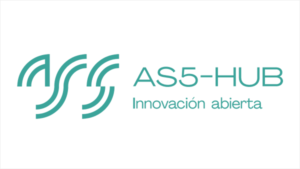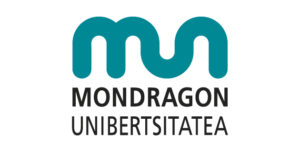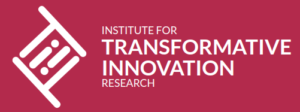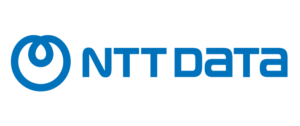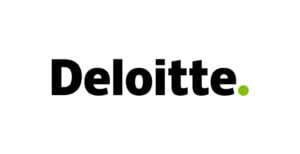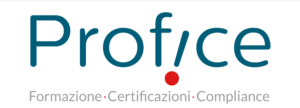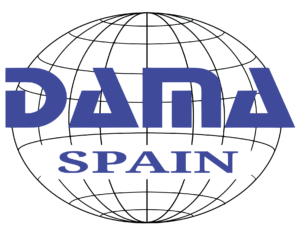The Data Management Summit will be attended by Alberto Palomo (CDO of the Government of Spain).

We are proud to be able to have Alberto Palomo as our institutional guest, who is the CDO of the Government of Spain. His presentation on the 28th is one of the most awaited of this edition of the Data Management Summit.
Tell us a little about yourself and your professional career.
I am originally from Madrid, although I have spent 15 of the last 20 years abroad. After getting my PhD in Mathematical Physics at CSIC in 2012, and after a postdoctoral stage, I started working as a researcher for the Huawei R&D+i lab in Canada, developing experiments for the acceleration of neural networks in integrated circuits. During the last 5 years I have worked for the North American subsidiary of a Spanish multinational company, in Big Data Analytics applications.
Recently I have accepted the direction of the Data Office of the Government of Spain (Secretary of State for Digitalization and AI), to coordinate the design of a reference model that allows the management and transversal sharing of public data (intra-AAPP, as well as with citizens, companies and the third sector).
What are your challenges, what do you like to do with data?
The challenges of the Data Office have to do above all with being able to bring together and synthesize (in that reference model alluded to above) all the information and dynamics of the different existing data initiatives/programs: both European and national regulations on data protection and governance, digitization strategies and plans, existing technologies and standardization and reuse frameworks, as well as governance issues necessary for the landing of such a model.
We want to coordinate the creation of a reference model (for data management and sharing) that is not only effective, but also flexible enough to ensure its sustainability over time and scalability. This will serve to lay the foundations on which to deploy and consolidate a “Data Culture” that will act as a catalyst in the country’s Digital Transformation.
Do you think companies have an adequate culture for managing data?

Every innovation and paradigm shift brings with it a natural level of friction and resistance, and this exists in both the private and public spheres. However, specifically, the commitment that the General State Administration has made to Digitalization and data management is very powerful. Digital Transformation plans have been designed throughout most of the functions of ministerial departments, where data plays a key role in the design and monitoring of innovative Public Policies. This represents an important cultural change, which will not be without challenges, but which is leading us towards a more advanced, more efficient country model, where technology is put at the service of citizens to solve specific problems.
Do companies understand that data is an asset?
In this issue, companies and organizations are operating at different speeds. For example, digital native companies have been pioneers in understanding the value of data, especially those whose business model is the personalization of digital advertising, and whose operations include the aggregation of data obtained through free digital services. Or Digital Platforms, whose main assets (besides branding) are technology and the data obtained through it.
But for some years now, the more traditional sectors of the economy have also been focusing on data, and how it can serve as a transformative catalyst for their businesses. According to Spanish studies, it is taking longer to achieve this capillarity at the SME level. This is due to different factors: a feeling of strategic misalignment between digitalization and their social work, not seeing a clear return on investment, or a lack of qualified personnel.
To solve it, we propose to study the existing sector dynamics, address each element of friction by capitalizing on previous successful experiences, and on the cooperation and support of the Public Administrations and the network of universities/technology centers.
What is the importance of data ethics and respect for regulations?
The European Model of Society is based on the combination of a competitive market economy, with respect for the rights and empowerment of citizens (both individuals and companies). These foundational elements of the Union are also transferred to the strategies that govern the steps of all the Member States.
As an example, the recent European Data Strategy (Feb 2020) is one of the cornerstones of the Digital Single Market. It defines a governance framework for the use and exchange of data across geographies and sectors, respecting European standards in terms of privacy and data protection, as well as competitiveness. It seeks to advance, on the basis of public-private partnerships, towards infrastructures and innovation in communication, computing, federation of data spaces, and interoperability of systems, not forgetting the training and awareness of citizens.
Another example is the Artificial Intelligence Regulation, where the European Commission has established a classification of risk levels for applications based on AI techniques:
For example, in the High Risk category are those uses that may adversely affect the security of critical infrastructures, or access to education and labor recruitment, or credit reliability, or predictive uses to combat crime. These applications are not prohibited, but are subject to transparency conditions: such as risk monitoring, technical documentation and auditability, human supervisory control, reporting that they are being used, or that the datasets used to train the algorithms are of high quality, do not contain biases, and that the resulting models are robust, reliable and cybersecure.
In the Unacceptable category is that limited group of applications that go directly against the basic principles of the EU, such as the exploitation of subliminal techniques, remote biometric identification in public places (except in very specific cases), or social scoring by authorities.
What are the most important challenges for CIOs, CDOs, CTOs in 2022?
I would like to answer this question by first highlighting some of the most significant differences between CDO positions in public and private organizations. First of all, the CDO role in companies has been established for a longer period of time, and generally responds to specific needs related to data that is captured or transformed through the business model of that organization, and that returns to the value chain of that model. In some cases, it is the units themselves that also make use of this data, based on different exploitation models such as information applications or Advanced Data Analytics and AI.
Likewise, in the case of data offices of public organizations, there are two specific conditions that differentiate them from private ones: the high volumes they produce (especially noteworthy in the case of the General State Administration), and aspects related to the sovereignty of the data and the limitations on the powers to reuse them. For these reasons, public offices have traditionally focused on promoting data availability and easy access. This has been developing for some time now under Open Data schemes (in Spain there is a specific regulation for the public sector to publish its datasets, and the AGE does it from datos.gob.es). But now it is also finding a renewed impetus to also foster economic and social transformation through data, and this entails challenges that, in addition to technological, security and governance aspects, also include cultural and change management considerations, as well as understanding incentives and market dynamics.
Finally, there are also common challenges among CDOs, such as knowing how to transfer the potential of data, assisting in the definition of use cases to extract this value, or supporting technological change and eliminating barriers within the organization itself.
Tell us a little about the Data Office and DAMA Spain.
As mentioned above, the Data Office of the Secretary of State for Digitalization and AI was created with the objective of defining the reference model for the sharing and governance of public data. This involves architectural, technological, standardization and governance, regulatory, security/privacy, and even cultural and change management aspects. This reference model seeks to be a guiding and enabling mechanism for a data-driven Civil Service, as well as for the promotion of the Data Economy and Data Society.
In this sense, the parallels with the mission of DAMA and DAMA Spain are evident: the promotion and encouragement of efficient data management and -more generally- of the “Data Culture”. The Data Office does not aspire to be the executing arm of the State’s various data programs, but to create an ecosystem for the management, sharing and access to public data. This ecosystem, which is a coordinating and facilitating element to enhance the benefits of operating quantitatively (i.e. “data-driven”), also has elements that can be exported to the Productive Economy and Society.
You have supported the event from the beginning. Why?
The interest in the event lies both in the strength of the ecosystem represented in it (speakers, exhibitors, and all the potential audience, who are a key part of this digital transformation based on data), and in the topics to be addressed. Among the latter, I would like to highlight two blocks: presentations and information on core concepts in Data Management, which are of practical use for the design and operation of projects, and a block of sessions on more innovative topics, for the strategic definition of plans.
All you need to know about the Data Management Summit
The event is free, but has limited places and each registration application has been evaluated by the admission committee formed by the organizers, using the Linkedin profile of the candidates. The program of the day includes different technical interventions on data management, data governance, security, analytics, machine learning and cloud, among others.
The program also includes a group dynamics between attendees, speakers, speakers, teachers and students; and different round tables with the participation of vendors and the most important players in the Data Management market.
Why should you not miss DMS?
Data management professionals participate in a wide range of activities designed to ensure that a company benefits from its investment in data, including enterprise architecture, data modeling and definition, data quality and management, and metadata management.
The event aims to be a bridge to academia and new generations who want to bring experience and learn from what is actually being done in enterprises in data.
Where and When
The event will be Hybrid 40 seats already assigned will be able to participate in the event at the Nebrija University of Madrid in C. de Sta. Cruz de Marcenado, 27, 28015 Madrid on October 27th and 28th, while a total of 160 people will be able to do it online thanks to the Google Meet platform that our sponsor Google and its partner Intelligence Partner gives us every year. Also the online places are already allocated.
Other editions
The Data Management Summit presents three editions every year, one in Spain, one in Italy and an international edition only online in English. The Italian edition will be held on November 23rd at the LuissHub in Milan.
About Nebrija University
Nebrija University is a private, secular and independent Spanish university, based in the city of Madrid and with other campuses in the Community of Madrid. This educational institution, founded in 1995, is home to more than 12,000 students of 56 different nationalities. Its name pays tribute to Elio Antonio de Nebrija, father of the first Spanish grammar, written in 1492. The University is the main sponsor of the Spanish edition of the Data Management Summit.
http://datamanagementsummit.org


